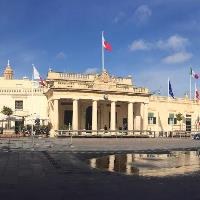(BRUSSELS) – EU leaders meet for an informal summit in Malta Friday, with two items on their agenda: how to stem the flow of migrants, particularly from Libya, and to get down to mapping a future for Europe after Brexit.
As the 27 leaders prepare for the upcoming 60th anniversary of the Rome Treaties on 25 March, EU leaders are looking to build on the political reflection on the EU’s future with 27 member states, which was launched immediately after the UK voted to leave the EU on 23 June last year and then continued at a meeting in Bratislava on 16 September.
In his letter on the future of Europe sent to the 27 heads of state or government on 31 January 2017, Council president Donald Tusk identified three main threats, dangerous for the stability of Europe. These include:
- new geopolitical situation: an increasingly assertive China, Russia’s aggressive policy towards Ukraine and its neighbours, wars, terror and anarchy in the Middle East and in Africa (with radical Islam playing a major role) and worrying declarations by the new American administration all make our future highly unpredictable
- internal situation: a rise of the nationalist, increasingly xenophobic sentiment in the EU itself
- state of mind of the pro-European elites: decline of faith in political integration, submission to populist arguments and doubt in the fundamental values of liberal democracy
Mr Tusk called on the leaders to remain united “to avoid another historic catastrophe”. He added: “It must be made crystal clear that the disintegration of the European Union will not lead to the restoration of some mythical, full sovereignty of its member states, but to their real and factual dependence on the great superpowers: the United States, Russia and China. Only together can we be fully independent.”
Regarding migration, the leaders are expected to focus on the Central Mediterranean route and Libya.
With spring approaching, leader should to agree on measures which aim to stem migratory flows, break the business model of smugglers and save lives.
Improved cooperation with the Libyan authorities will be a top priority. Mr Tusk is asking for innovative solutions, and is aiming for “an ambitious declaration setting out the way ahead in a clear and concrete way”.
They should confirm support for the Government of National Accord and plan assistance to Libyan regional and local communities as well as international organisations active in the country. They are also expected to call for increased cooperation with UNHCR and IOM
Informal meeting of EU heads of state or government, 03/02/2017, agenda and briefing


